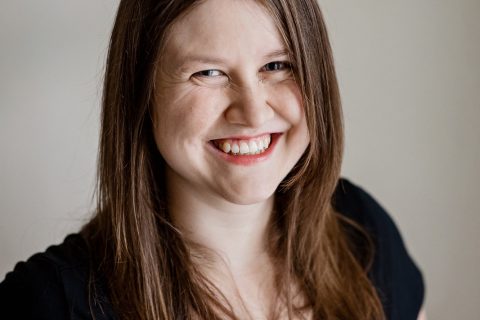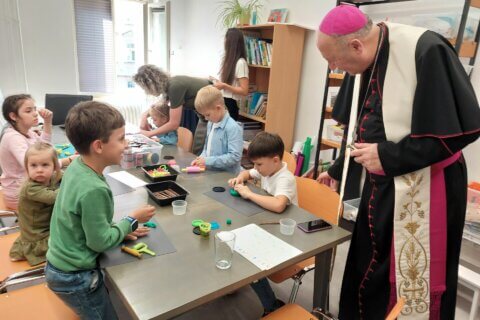Interview with Šárka Dršková: Twenty Years of the Magdala Counseling Center

Tell us about who your clients are and how the Magdala Counseling Center assists them.
Our facility lends a helping hand to people who have been victims of violence, especially violence committed in close relationships. We work with individuals who have been abused, with abusers, and with children. Man was made in the image of God, which means that every human life embodies infinite value and dignity. Our mission is to offer help, safety, and acceptance in such extreme situations, when people’s dignity is abused.
What is the situation in society today with regard to domestic violence? Is the incidence of domestic violence diminishing as more information about it is available? In your opinion as an expert, does society do enough for victims of domestic violence?
Domestic violence is a problem that affects society as a whole. It is present at all social levels and concerns many different areas. People that turn to us come from a wide range of backgrounds. They include salespersons, unemployed individuals, handicapped people, lawyers, and doctors. The good news is that there are now discussions about this problem. In the Czech Republic, however, attention mostly focuses on working with the victims. Even you asked about that. But successful practices from abroad suggest that we need to bring attention to working with the entire family, particularly with the person who is the perpetrator of violence. In our society, it is still not commonplace that people who physically or verbally abuse their partner would come out and confess their actions.
Does it mean that working with the entire family is important in dealing with domestic violence?
Yes, the family is at the center of our interest. In working with families, we try not to designate either of the parents as the victim or the aggressor. Assigning a label to a person usually means that we lose him or her. We want to know what has happened between the parents, we discuss particular incidents, and we try to understand the situation as best as possible. By working with the person who commits violence, we can stop the abuse from being perpetrated and repeated in subsequent relationships of the persons involved. Children are extremely important. We must never forget children. For children, it is of paramount importance to know the details of their future contact with the parent who abused the other parent.
Who is the most common victim of violence? Is there any prevention?
Highly vulnerable persons face the highest risk. Often, they are people who have never lived in a functioning family or who had no family and grew up under institutional care. People with an addictive personality, whether they are addicted to substances or are emotionally dependent on relatives. Individuals suffering from a physical or mental illness. Another group are people who go through a certain life crisis, face difficulties, single mothers, persons in debt, and senior citizens who can easily come under financial pressure, which makes them a potential target of violence. Such individuals might have experienced violence during their childhood, and they regard it as something normal. A sad example of this phenomenon is how violence was perceived by one mother we had in our care. She had been abused in her primary family. In her adulthood, she regarded being slapped, denigrated, pushed around, and beaten up as a normal part of a partnership. She thought that things only got out of hand when her partner beat her with a metal rod.
What specific assistance does the Magdala Counseling Center provide?
The services we provide include a safe house, professional social counseling, socio-therapeutic counseling, legal counseling, and spiritual guidance. We help people overcome crises. Together with them, we work on stabilizing their situation and try to make them feel capable of being in charge of their lives.
What brought you to this kind of work?
After completing high school, I studied to be a social worker, and I joined psychotherapeutic training. I like working directly with people. I did try to work in another field, but I couldn’t find a sense of purpose there. In 2009, I joined Caritas as a social worker in an asylum home for women and mothers. I found my purpose there. Afterwards, I led community groups, because to me, healing work needs to focus not only on individuals, but also on entire groups. As time went on, I moved on to the Magdala Counseling Center, where I’ve now been for six years.
What is the best and most satisfactory part of your work?
The aspect of my work I like the best is seeing that a person who has used our services has acquired certain skills or abilities, and no longer needs our help. I’m happy when parents learn to communicate with their children and establish a positive relationship in which everyone feels happy. Likewise, I find it rewarding when a mother who has neglected herself in a lasting dysfunctional relationship that brought her much suffering discovers herself and her personal value, or when young people from high-risk backgrounds of living outside the law, who for one reason or another cannot rely on their families, come to us to seek advice at a time when their situation can still be resolved.
Help those who are in need
„One who is gracious to a poor man lends to the Lord, And He will repay him for his good deed.“ (Proverbs 19:17)
Your donation:
- funds food aid and shelter for those who are in need,
- supports social services for seniors, people with special needs, families in need, victims of domestic violence and those who have found themselves in a life burdening situation
- supports education for disadvantaged children in developing countries.
Donate now
You can donate one-time or become a sustaining donor. Donations of any amount are accepted and greatly appreciated!
Thank you for your support!
Donate now.




